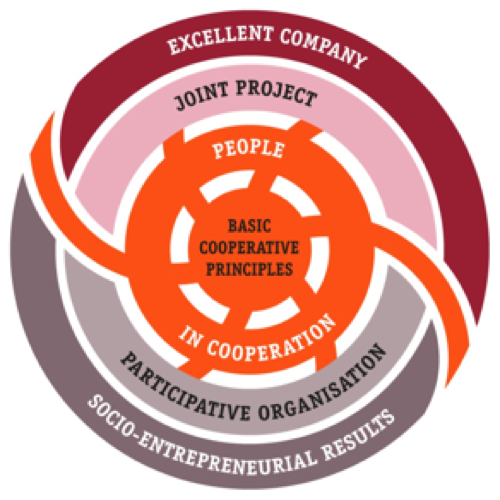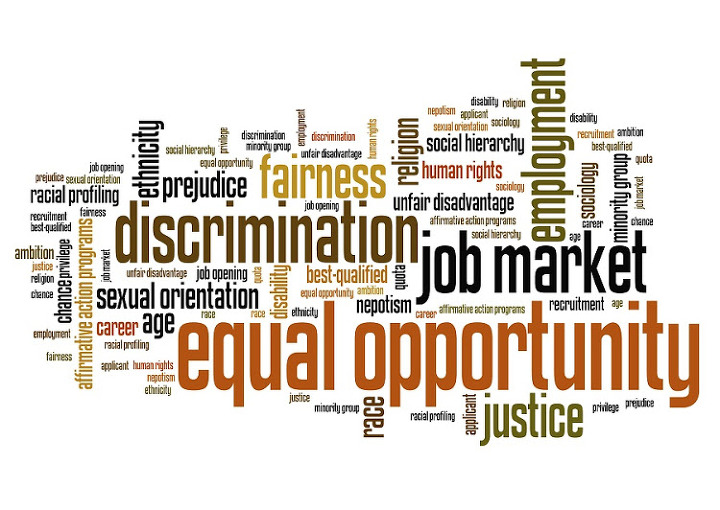It is the era of dichotomy. The new virus splits the human world in two: negative and positive. The new borders and divisions have not only divided our society and the world into segments but have also determined our movements or even when we are to leave our homes. The writer in the Diagnosis of the Times article in the Catholic Peace Weekly gives the readers some thoughts in the world we are entering.
If you think about it, human history without exaggeration is a history of dichotomy. First, there is a black-and-white logic that embraces those who think like I do and excludes those who don't. Historically, human society is a strategy of integration, conflict, war, aggression, alliance, cooperation converging in two ways: those we embrace and those we exclude.
We divide human existence into two domains, the soul and the body, and further expand it into spirit and matter. The study of the realm of the soul and mind has spread to religion, philosophy, humanities, and even psychology and psychiatry. The study of the body has diversified into medicine, and from there to physics, chemistry, biology, and geoenvironmental science exploring the whole world of things.
And the dichotomy that hit our world with a new paradigm at the end of the 20th century is the differentiation of analog and digital, which we often call offline and online. Or it can be divided into the world of atoms, particles of matter, and the world of bits, which represents the unit of information online. The real world is offline, but when I connect to the electronic information and communication network I enter the virtual world, my thoughts become part of the online world. The body is in the office, but the mind is in the stock market, or the body is sitting in a cafe, my fingers bring me into the world of shopping.
Creativity, which is often emphasized these days, comes from crossing the boundaries of this dichotomy. We have been living in an online world: multiplicity, multilayer, hybridity, and different space and time world but it is true that the mind, for a longer time, has been familiar with the world of matter, offline.
New viruses have made us fearful of physical 'contact' and infection, and now online schooling, internet education, videoconferencing, telecommuting, and work from home are rapidly becoming commonplace. A new order, and even if the corona19 virus infection is over, it will be difficult to return to the previous lifestyle and social customs.
With the emergence of electronic networks from the end of the 20th century, we have the popularity of the Internet, online and cyberspace, We hear about the “Digilog” theory that emphasized the harmony of digital and analog. [What we see with the eyes is converted into something analogous which is the analog, the digital, what is seen with the eyes is changed into a number].
We are forced to embody 'Digilog' in real life. We need not worry for we will all get used to it. When Sir Tim Berners Lee of England founded the World Wide Web, its philosophy was open, shared, and engaged. If you can't make physical contact, connect. As long as there is a 'network' to maintain relationships, our community will work.
New viruses have made us fearful of physical 'contact' and infection, and now online schooling, internet education, videoconferencing, telecommuting, and work from home are rapidly becoming commonplace. A new order, and even if the corona19 virus infection is over, it will be difficult to return to the previous lifestyle and social customs.
With the emergence of electronic networks from the end of the 20th century, we have the popularity of the Internet, online and cyberspace, We hear about the “Digilog” theory that emphasized the harmony of digital and analog. [What we see with the eyes is converted into something analogous which is the analog, the digital, what is seen with the eyes is changed into a number].
We are forced to embody 'Digilog' in real life. We need not worry for we will all get used to it. When Sir Tim Berners Lee of England founded the World Wide Web, its philosophy was open, shared, and engaged. If you can't make physical contact, connect. As long as there is a 'network' to maintain relationships, our community will work.




